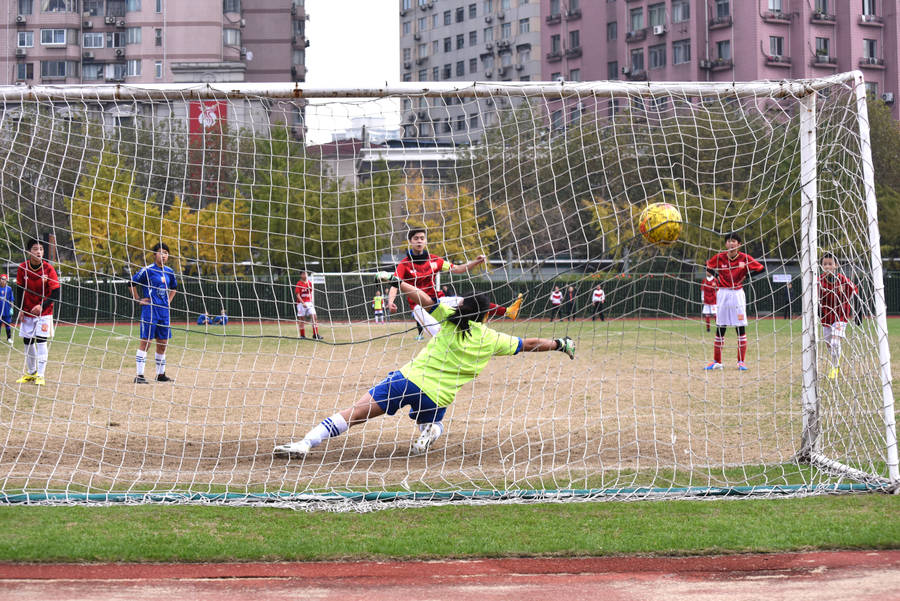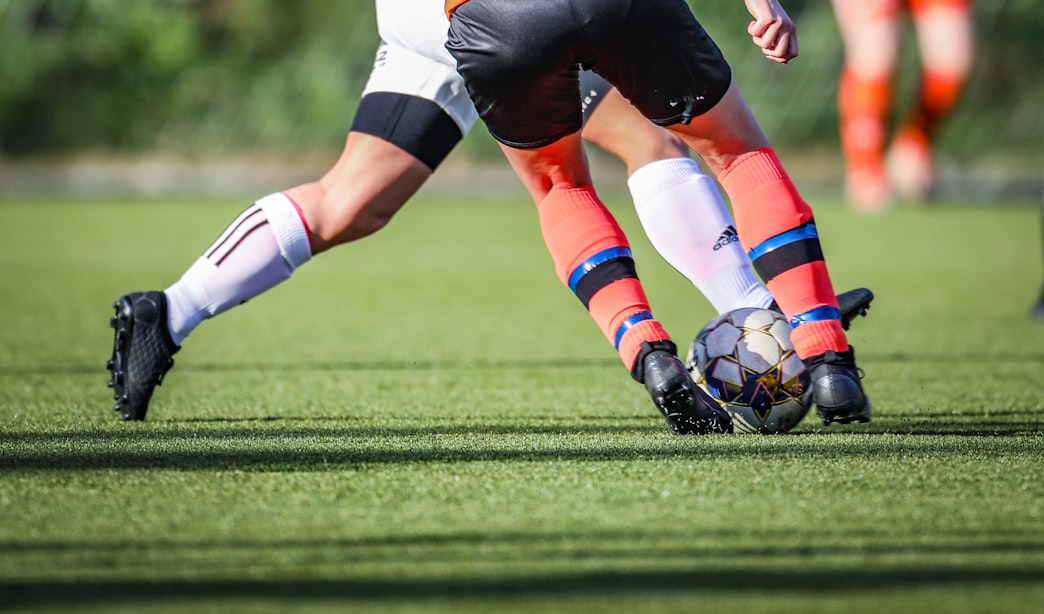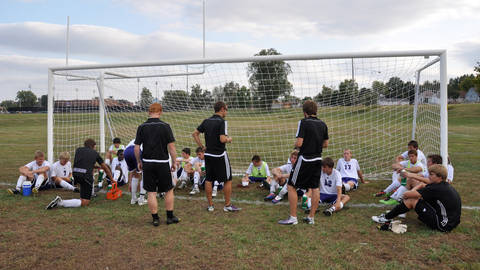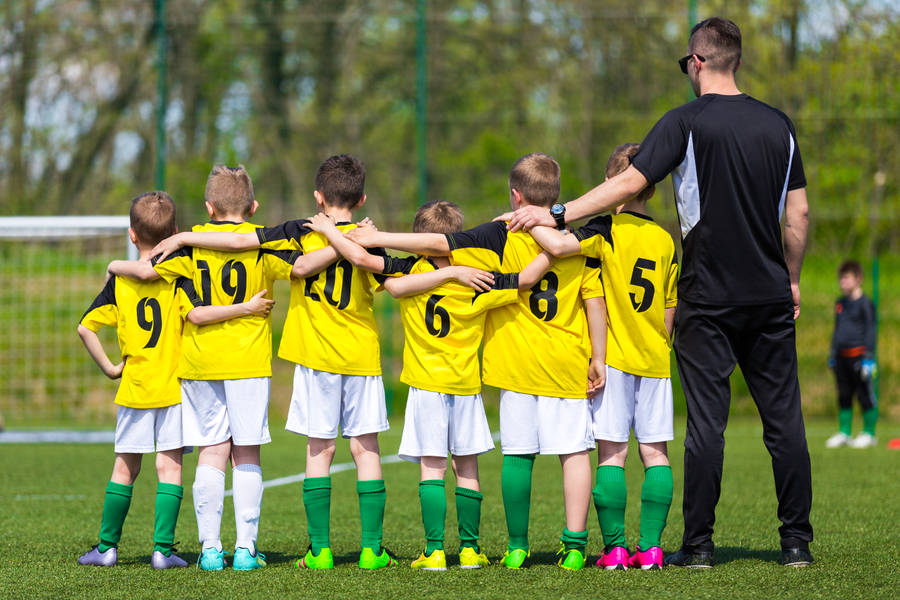
When my team was involved in a cup tie that went to penalties earlier in the season, I was reminded of one of my own greatest triumphs when, aged just 10, I scored the winning penalty in a shootout to win the local cup for my junior team. Hard to believe this was nearly 40 years ago! The fact that it’s a memory that has stayed with me, and is so vivid, would suggest that it was a moment of great emotion. Firstly nervousness and apprehension followed by great relief and joy.
The penalty kick represents perhaps the most psychologically demanding moment in junior football, a moment of pressure where success and failure balance on a knife edge. As a young penalty taker places the ball on the spot, walks backward and turns to face the goalkeeper, they enter a psychological moment where the physical aspects of the game temporarily become secondary to the mental battle. The statistics tell an interesting story, at professional level, penalties are converted at roughly 75%, meaning the advantage lies firmly with the taker. Yet despite this mathematical edge, penalties remain a lottery of nerves, a test not merely of technique but of emotional regulation, focus management and pressure handling. For junior grassroots players experiencing this challenge, whether in regular matches or the heightened stakes of cup competitions, understanding the psychological dimensions of penalty taking and saving offers a valuable edge.
I think that one of the key aspects of handling penalty pressure is routine. Establishing a consistent pre shot routine helps players gain a sense of control over the situation, reducing uncertainty and increasing confidence. Whether it is taking a deep breath, visualising the ball hitting the net or focusing on a specific target, having a set process enables players to block out distractions and execute their shot with potentially greater accuracy. Sports psychologists often emphasise the importance of routine in pressure situations, as it provides a structure that allows players to replicate their best performances, even under the most intense scrutiny. Rehearsing penalties in training with a focus on mental as well as physical preparation can ensure that young players develop a sense of familiarity, making the experience feel less daunting in real match scenarios.
The fear of failure is one of the biggest psychological barriers when taking a penalty, especially for young players who may feel the weight of expectations from teammates, coaches and watching parents. However, shifting the mindset from fearing failure to embracing the challenge can significantly improve performance. Viewing a penalty as an opportunity rather than a burden allows players to approach the moment with a positive mindset, reducing the likelihood of hesitation or overthinking. Confidence plays a major role in penalty success and belief in your own ability can often be a deciding factor between scoring and missing. This self assurance can be developed through practice, positive reinforcement and past experiences of success, which build a player's trust in their own technique and decision making.
Another important factor in penalty taking psychology is decision making. Doubt and last minute changes of mind can lead to hesitation and poorly struck penalties. The most successful penalty takers commit to their choice early and trust their instincts, eliminating indecision and allowing for a clean strike. Analysing goalkeepers' tendencies can also provide an advantage, with many elite players studying patterns in opposition keepers' movements to anticipate their reactions. However, for grassroots players, the focus should primarily be on executing their own technique rather than second guessing the goalkeeper. Picking a spot and striking the ball with confidence minimises the risk of hesitancy and allows players to take control of the situation rather than reacting to external pressures.
The nature of taking a penalty creates a unique psychological dynamic unlike any other moment in football. The penalty scenario triggers our body's stress response, the evolutionary fight or flight mechanism that once helped our ancestors survive predators now activates during sporting pressure. This physiological cascade releases adrenaline and cortisol, increases heart rate, diverts blood from fine motor control areas and narrows cognitive processing. These changes, while useful for escaping physical danger, are problematic for the precision task of penalty taking. Young players often interpret these normal physiological responses such as butterflies in the stomach, weak legs and racing thoughts, as a sign of weakness or impending failure, creating a negative spiral where fear of these sensations amplifies them further.
The psychological dynamics between penalty taker and goalkeeper creates a fascinating interpersonal battle that even young players can learn to work through. Research analysing thousands of professional penalties reveals that goalkeepers dive to the kicker's natural side (right for right footed players) approximately 60% of the time, creating an immediate statistical advantage for players aware of this tendency. However, this advantage disappears in high pressure situations where penalty takers show a stronger bias toward their comfort zone (the natural side), effectively neutralising their statistical edge when they need it most.
The different psychological burdens carried by penalty takers and goalkeepers create opposite pressure dynamics. For penalty takers, expectation creates pressure. They are statistically "supposed" to score, making success merely relief rather than triumph. For goalkeepers, opportunity creates a different psychological landscape, they aren't expected to save, making each save a genuine victory and reducing the fear of failure.
For grassroots coaches, recognising these different psychological positions allows tailored support.
Penalty takers can benefit from reframing that reduces perceived pressure, focusing on process over outcome, reinterpreting the situation as an opportunity to demonstrate their skills rather than avoid failure. Goalkeepers benefit from approaches that emphasise their opportunity advantage, encouraging expressive confidence and decisive.
Penalty taking is as much a psychological battle as it is a technical skill and young players who develop mental resilience alongside their physical abilities are more likely to succeed in highly pressure situations. By establishing routines, controlling breathing, embracing the challenge, making confident decisions and learning from experiences, players can significantly improve their ability to handle penalty shootouts. Understanding that pressure is a natural part of football and learning how to manage it effectively allows young footballers to develop the confidence needed to step up when it matters most. With the right mental approach, penalties can become an opportunity for players to showcase their skill and composure rather than a moment of fear and anxiety.

















